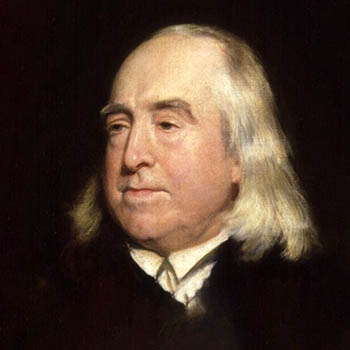The Supreme Court's Negative Utilitarianism and its Contemporary Impacts
- Paolo Passalacqua
- Sep 10, 2023
- 3 min read

The United States Constitution's initial description of its highest court, the Supreme Court, is quite cursory and markedly lacking in detail, as the court's first mention, Article III Section I, serves as more of an indicator of its relative structure and position in the legal hierarchy rather than its function. The court lacks a stated direct legal predecessor, singular source of authority, or definitive code, jurisprudential or otherwise, by which it is to always operate under, noticeably demarcating it from the vast majority of
other American political and social institutions. Thus, one of the most enduring developments from sources both external and internal to the court is its drive towards a philosophical purpose, specifically within the context of ethics (note: henceforth, the terms “philosophy” and “ethical pursuit” when pertaining to the court are used interchangeably). Although the Supreme Court has historically exhibited ethical principles similar to those of Aristotle and the Anglo-American Empiricists, its decision making and methodology ultimately lends itself to a form of Negative Utilitarianism, especially since the turn of the millennium.
The functionality of a court within a civil society is paramount to its usefulness and thus necessitation. This heeds no differently in the case of the Supreme Court, which must not only fundamentally serve the entire civil society of the United States but must also complement the other two branches of the federal government. What it aims to achieve and how it does so is ultimately integral when defining it; its essence can thusly be said to precede its existence. Judging by a compounding of its prior judicial decisions, precedents, and stated legal goals, the essence of the ethical pursuit of the Supreme Court can ultimately be stated to be as follows: “the creation of a more just society through a fair and equal interpretation of the law.” The manner in which the court defines terms such as “more just” and “fair” must be understood through the respective normative ethical and metaethical theories upon which the SCOTUS rests itself. Although the dealings of the court, and, seemingly, the premises under which it operates, belong to the realm of applied ethics, all ethical positions definitionally concerning concepts such as “justice,” “goodness,” “virtue,” and “equality” may only be described in terms of metaethical and normative principles.
The specific metaethical and normative principles by which the Supreme Court has tacitly run under over the past two and a half centuries are Naturalism and Negative Utilitarianism, although this discussion only contains the scope of the latter. Negative Utilitarianism, the proposition that only actions that limit the aggregate universal disutility among living beings can be considered moral, is deeply ingrained in every legal decision made by the Supreme Court since its inception although the term may have not been formally defined until the 20th century. The deep-seated idea and actualization of the Supreme Court as some kind of great reducer, one that acts by eliminating great sums of legal error and correctly interpreting the law so as to prevent the vices of injustice and inequality, is entirely based in the principle of limiting universal suffering. The methodology of the court is most fundamentally driven by an aversion to error, an aversion to societal displeasure created by legal mistakes that ultimately detriment society just as they do legal and governmental institutions. In turn, concepts such as the aforementioned “fairness” are made to be things only definable in terms of their relative negative, meaning that by the Negative Utilitarian criteria of the Supreme Court, “fairness” is “a lack of unfairness.”
No more clearly was this ethical theory primacy in the essence of the Supreme Court exemplified in the court’s June 30th decision regarding the legality of President Joe Biden’s student loan forgiveness plan. The verdict, regardless of its actual legal veracity, was made entirely based on the negative ethical output of the plan should have gone through. The court further upheld its own precedent of understanding ethics only in terms of the net negative utility in its decision to side against student loans, as it cited overreach of the government and negative strain that would be put on the federal economy that would result from the proposed plan. The prospect of even potentially societal negative utility was compelling enough in it of itself to deem the student loan forgiveness as morally, therefore legally, invalid. The philosophical ethos of the Supreme Court as well as its consequent function in society, although never explicitly stated within in the court’s defining documents, imperatively lies in a normative ethical theory, with recent decision-making resting almost exclusively on it.



Comments